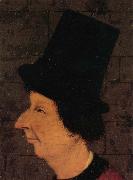Wholesale Oil Painting No Minimum |
|||||||||||
|
|
|||||||||||

|
|||||||||||
|
|
|
||||||||
BOSCH, HieronymusNetherlandish Northern Renaissance Painter, ca.1450-1516 Bosch produced several triptychs. Among his most famous is The Garden of Earthly Delights. This painting depicts paradise with Adam and Eve and many wondrous animals on the left panel, the earthly delights with numerous nude figures and tremendous fruit and birds on the middle panel, and hell with depictions of fantastic punishments of the various types of sinners on the right panel. When the exterior panels are closed the viewer can see, painted in grisaille, God creating the Earth. These paintings have a rough surface from the application of paint; this contrasts with the traditional Flemish style of paintings, where the smooth surface attempts to hide the fact that the painting is man-made. Bosch never dated his paintings and may have signed only some of them (other signatures are certainly not his). Fewer than 25 paintings remain today that can be attributed to him. Philip II of Spain acquired many of Bosch's paintings after the painter's death; as a result, the Prado Museum in Madrid now owns several of his works, including The Garden of Earthly Delights. |
||||||||
|
|
||||||||
Details of The Conjurer
Details of The Conjurer Painting ID:: 30216 |
nn02
The Conjurer's tall hat nn02 The Conjurer's tall hat |
|||||||
|
|
||||||||
BOSCH, HieronymusNetherlandish Northern Renaissance Painter, ca.1450-1516 Bosch produced several triptychs. Among his most famous is The Garden of Earthly Delights. This painting depicts paradise with Adam and Eve and many wondrous animals on the left panel, the earthly delights with numerous nude figures and tremendous fruit and birds on the middle panel, and hell with depictions of fantastic punishments of the various types of sinners on the right panel. When the exterior panels are closed the viewer can see, painted in grisaille, God creating the Earth. These paintings have a rough surface from the application of paint; this contrasts with the traditional Flemish style of paintings, where the smooth surface attempts to hide the fact that the painting is man-made. Bosch never dated his paintings and may have signed only some of them (other signatures are certainly not his). Fewer than 25 paintings remain today that can be attributed to him. Philip II of Spain acquired many of Bosch's paintings after the painter's death; as a result, the Prado Museum in Madrid now owns several of his works, including The Garden of Earthly Delights. |
||||||||
|
|
||||||||
|
|
Details of The Conjurer
Details of The Conjurer Painting ID:: 30218 |
nn05
The Secret of the tarot cards
nn05 The Secret of the tarot cards |
||||||
|
|
||||||||
|
BOSCH, Hieronymus Netherlandish Northern Renaissance Painter, ca.1450-1516 Bosch produced several triptychs. Among his most famous is The Garden of Earthly Delights. This painting depicts paradise with Adam and Eve and many wondrous animals on the left panel, the earthly delights with numerous nude figures and tremendous fruit and birds on the middle panel, and hell with depictions of fantastic punishments of the various types of sinners on the right panel. When the exterior panels are closed the viewer can see, painted in grisaille, God creating the Earth. These paintings have a rough surface from the application of paint; this contrasts with the traditional Flemish style of paintings, where the smooth surface attempts to hide the fact that the painting is man-made. Bosch never dated his paintings and may have signed only some of them (other signatures are certainly not his). Fewer than 25 paintings remain today that can be attributed to him. Philip II of Spain acquired many of Bosch's paintings after the painter's death; as a result, the Prado Museum in Madrid now owns several of his works, including The Garden of Earthly Delights. Details of The Conjurer nn05 The Secret of the tarot cards |
||||||||
|
|
||||||||
|
Prev Next
|
||||||||
|
|
||||||||
|
Related Paintings to BOSCH, Hieronymus :. |
||||||||
|
|
||||||||
|
CONTACT US |


